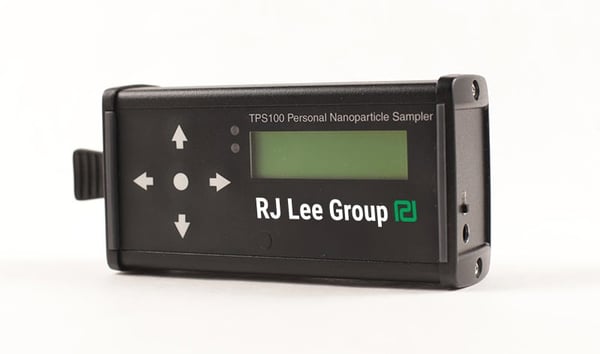INNOVATIVE SCIENTIFIC TECHNOLOGY
TPS100 Nanoparticle Sampler
Exposure to naturally-occurring, combustion related, and engineered nanoparticles (ENP) is a growing concern with respect to public health and impact on the environment. Detailed characterization of airborne nanoparticles is a critical component to an effective assessment of exposure.
RJ Lee Group, in collaboration with Colorado State University, has developed the TPS100, a sampler based on the principle of thermophoresis, or thermal precipitation, where an internal temperature gradient creates a force that drives particles to the EM grid, independent of orientation.
The TPS100 collects airborne particles directly on an electron microscope (EM) grid which can be analyzed without any preparation. It is the first fully self-contained, handheld thermophoretic sampling device on the market.
Early adopters of this unique technology include government agencies NIOSH, EPA, the Oak Ridge National Laboratory (ORNL), and NASA who selected it for use on the International Space Station.
The TPS 100 is used to evaluate a range of particulate matter, including:
- Cerium particles from diesel fuel emissions
- Siloxane in the atmosphere
- Secondary organic aerosols
- Emissions from 3D printing
- Aerosols released from composite nanomaterials
- Release of nanocellulose from a production process
- Combustion byproducts
- Release of ultrafine metal particles from small electric motors

Learn More About the TPS100 Nanoparticle Sampler
Ready to learn more about the TPS100 Nanoparticle Sampler?

